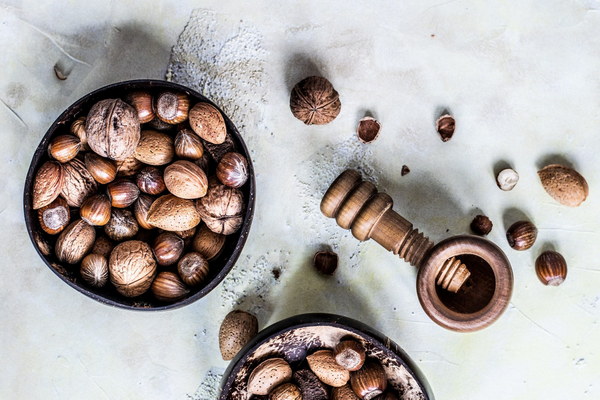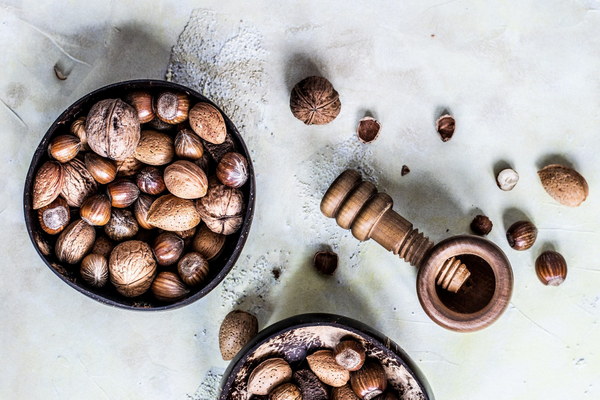Natural Remedies Unveiling the Time-Tested Herbs from the Traditional Chinese Medicine for Dampness Relief
Introduction:
Dampness, a common health concern in traditional Chinese medicine (TCM), refers to an excess of dampness in the body that can lead to a range of discomforts, from fatigue and bloating to joint pain and skin issues. To alleviate this condition, TCM offers a variety of natural remedies, primarily through the use of herbs. In this article, we delve into the time-tested and widely-used herbs from the TCM for dampness relief.
1. Cang Zhu (Atractylodes Macrocephala)
Cang Zhu is a versatile herb that is often used to treat dampness and relieve its associated symptoms. It helps to invigorate the spleen and lung meridians, improving digestion and eliminating dampness. This herb is particularly beneficial for those with symptoms such as fatigue, bloating, and weight gain.
2. Fu Ling (Poria Cocos)
Fu Ling is a commonly used TCM herb that has strong dampness-drying properties. It is known for its ability to absorb dampness from the body, thereby reducing symptoms such as edema, fatigue, and water retention. Additionally, it helps to strengthen the immune system and improve overall health.
3. Bai Zi Ren (Semen Coicis)
Bai Zi Ren is a popular TCM herb used to treat damp-heat conditions. It has a cooling and dampness-drying effect, which makes it beneficial for those with symptoms such as damp-heat induced acne, eczema, and skin rashes. Furthermore, it helps to relieve fatigue and improve digestion.
4. Fu Ling Pi (Poria Cocos)

Fu Ling Pi is the bark of Fu Ling and is used to treat dampness and water retention. It is often combined with other herbs to enhance its efficacy. This herb is beneficial for those with symptoms such as edema, bloating, and weight gain, as it helps to promote urination and reduce fluid retention.
5. Shen Qu (Malt)
Shen Qu is a fermented grain commonly used in TCM to treat dampness and improve digestion. It is made from rice, wheat, and other grains, which are fermented with various microorganisms. This herb helps to break down food and eliminate dampness, thereby reducing symptoms such as bloating, gas, and fatigue.
6. Dong Quai (Angelica Sinensis)
Dong Quai is a well-known TCM herb that is often used to treat dampness and relieve its associated symptoms, especially in women. It helps to invigorate blood circulation, reduce cramps, and alleviate pain. Additionally, it has a dampness-drying effect, making it beneficial for those with symptoms such as fatigue, bloating, and weight gain.
7. Astragalus (Astragalus Membranaceus)
Astragalus is a popular herb used in TCM to strengthen the immune system and improve overall health. It is also effective in treating dampness and relieving symptoms such as fatigue, weakness, and joint pain. This herb is often combined with other herbs to enhance its efficacy.
Conclusion:
Traditional Chinese medicine offers a wealth of natural remedies for dampness relief. These herbs, including Cang Zhu, Fu Ling, Bai Zi Ren, Fu Ling Pi, Shen Qu, Dong Quai, and Astragalus, have been used for centuries to alleviate the symptoms of dampness and improve overall health. If you are experiencing dampness-related issues, consider consulting a TCM practitioner to determine the best herbal treatment for your specific needs.









